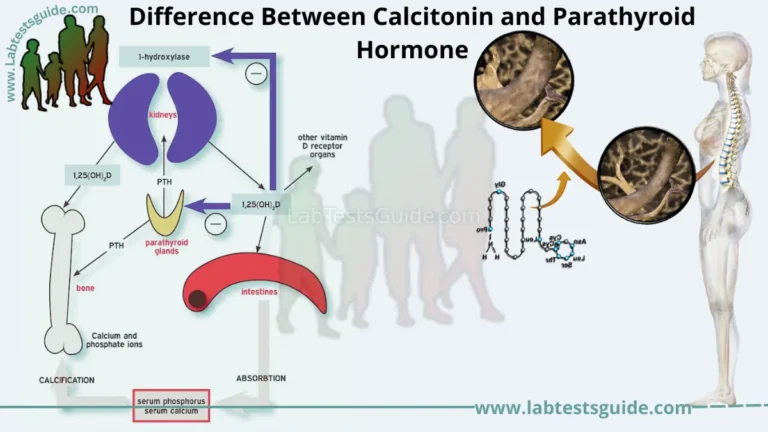Hyperparathyroidism is an excess of parathyroid hormone in the bloodstream due to the hyperactivity of one or more of the four parathyroid glands of the body. These glands are about the size of a grain of rice and are found in your neck.

Symptoms of Hyperparathyroidism :
The symptoms can be so mild and nonspecific that they do not seem to be related at all to parathyroid function, or they can be severe. The range of signs and symptoms includes:
- Fragile bones that easily fracture (osteoporosis)
- Kidney stones
- Excessive urination
- Abdominal pain
- Tiring easily or weakness
- Depression or forgetfulness
- Bone and joint pain
- Frequent complaints of illness with no apparent cause
- Nausea, vomiting or loss of appetite
Causes of Hyperparathyroidism :
- The parathyroid glands maintain adequate levels of calcium and phosphorus in your body by activating or deactivating the secretion of parathyroid hormone (PTH), just as a thermostat controls a heating system to maintain a constant air temperature. Vitamin D also participates in the regulation of the amount of calcium in the blood.
- Normally, this balancing act works well. When blood calcium levels fall too low, the parathyroid glands secrete enough PTH to restore balance. PTH increases calcium levels by releasing calcium from the bones and increasing the amount of calcium absorbed by the small intestine.
- When blood calcium levels are too high, the parathyroid glands produce less PTH. But sometimes one or more of these glands produce too much hormone, which leads to abnormally high levels of calcium (hypercalcemia) and low levels of phosphorus in the blood.
- Mineral calcium is best known for its role in keeping your teeth and bones healthy. But calcium has other functions. It helps in the transmission of signals in nerve cells and participates in muscle contraction. Phosphorus, another mineral, works in conjunction with calcium in these areas.
- Severe calcium deficiency. Your body may not get enough calcium from your diet, often because your digestive system doesn’t absorb the calcium from it.
- Severe vitamin D deficiency. Vitamin D helps maintain appropriate levels of calcium in the blood, and it helps your digestive system absorb calcium from your food.
- Chronic kidney failure. Your kidneys convert vitamin D into a form that your body can use. If your kidneys function poorly, usable vitamin D may decline and calcium levels drop. Chronic kidney failure is the most common cause of secondary hyperparathyroidism.
Rick factor of Hyperparathyroidism :
You may have an increased risk of primary hyperparathyroidism if you:
- She is a woman who has gone through menopause.
- You have had severe prolonged calcium or vitamin D deficiency
- You have a rare inherited disorder, such as multiple endocrine neoplasia, type 1, which usually affects multiple glands
- He has received radiation therapy for cancer that has exposed his neck to radiation.
- They have taken lithium, a medication that is most often used to treat bipolar disorder.
Diagnosis of Hyperparathyroidism :
- Blood test:
Additional blood tests can help your primary care provider make a more accurate diagnosis. Your primary care provider will check your blood for high levels of PTH, high levels of alkaline phosphatase and low levels of phosphorus. - Urine tests:
A urine test can help your primary care provider determine how severe your condition is and if kidney problems are the cause. Your primary care provider will check your urine to see how much calcium it contains. - Kidney tests:
Your primary care provider may take x-rays of your abdomen to detect kidney abnormalities.
Possible References Used






